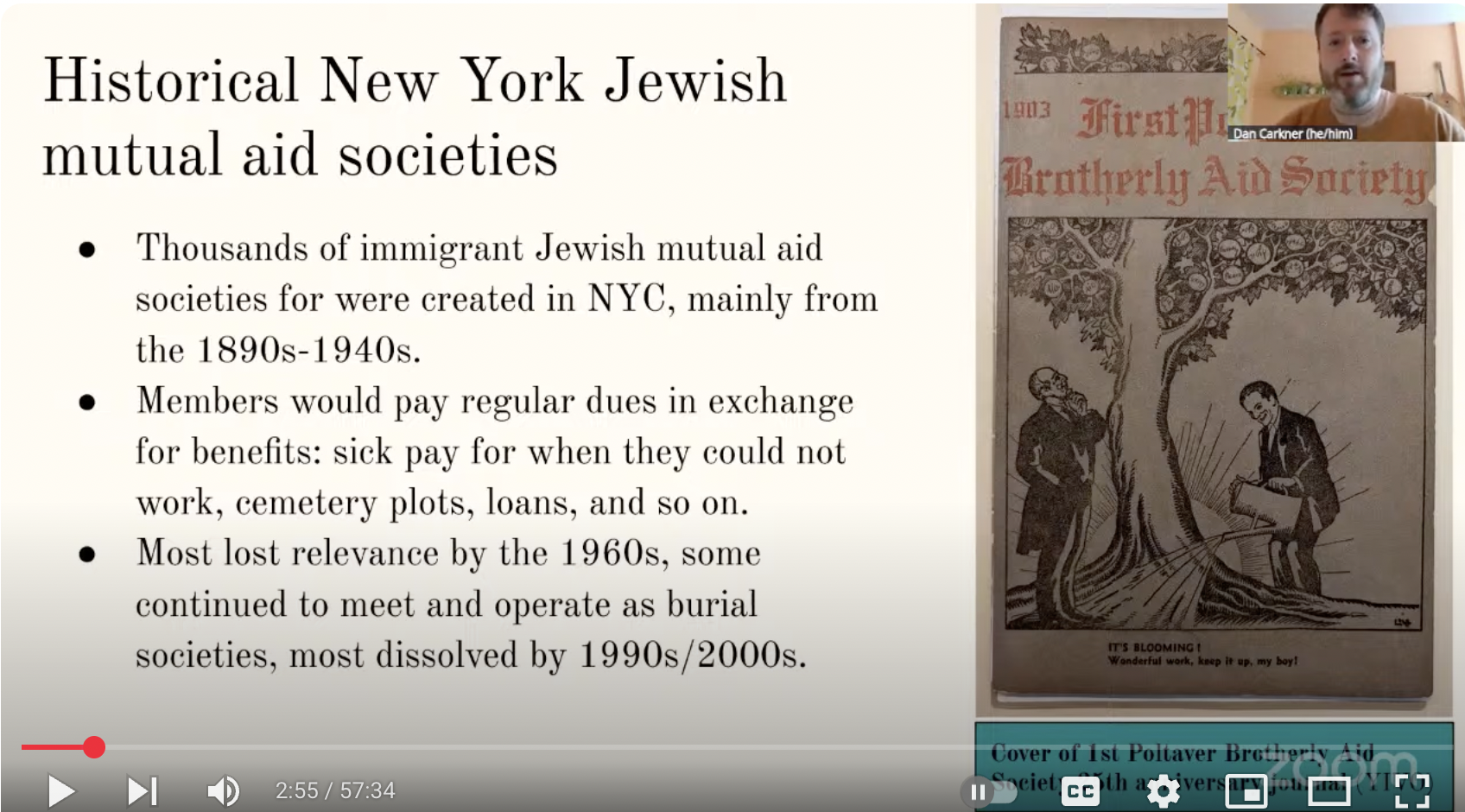
Landsmanshaftn Resources
At this year’s 5th annual festival, we invite you to gather with us for our first ever KlezCummington Landsmanshaft Mutual Aid Banquet — a theatrical, musical, delicious, and immersive performance and mutual aid fundraiser. Drawing from the history and cultural landscapes of landsmanshaftn — mutual aid societies established by Jewish immigrants to the United States in the late 19th and early 20th centuries originating from the same hometowns or regions in Eastern Europe — our banquet will celebrate the generative power of collective organizing and lineages of solidarity, while imagining and co-creating new futures of resistance and community care.
Oral Histories about Landsmanshaftn
From the Yiddish Book Center’s Wexler Oral History Project
Stories about landsmanshaftn banquets
Rhoda Weiner and Mildred Berman, sisters living in Florida who grew up in Jackson Heights, NY, describe the banquets organized by their parents' landsmanshaftn - a society formed by Jewish immigrants from the same town or area in Europe.
“They served a wonderful function”: Landsmanshaftn in NYC
Sue Ehrlich—New York native, Yiddish activist, and artist—describes her parents' involvement in Landsmanshaftn, and the opportunities they gave her to see Yiddish theater as a child.
Father’s Landsmanshaft
Irv Zuckerman describes the generational divides of his father's landsmanshaft.

“The most elaborate events were Installation Banquets for new leadership and Anniversary Banquets, which were typically held every five years from the founding of the organization.”
-
In this lecture, Dan Carkner will give an overview of the relationships between immigrant Jewish musicians and Jewish mutual aid societies in New York City from the 1910s to the 1960s. It will examine how these societies recreated aspects of the traditional musical culture of their hometowns back in Eastern Europe with a turn over time to modern American practices.
As hundreds of thousands of Jewish immigrants arrived in New York City in the early twentieth century, they formed mutual aid societies, labor unions, political and cultural clubs to find stability and solidarity. Known as landsmanshaftn, many of these societies were formed around the towns that the immigrants were from, e.g. the Kolomear Friends Association, the Independent Bialystoker Brotherly Love Association No. 1, the Krementchuger Ladies Benevolent Association, and so on. Offering burial services, sick benefits, emergency loans; landsmanshaftn also organized attendance at funerals, marriages, and bar mitzvahs of members, and held regular social events. The most elaborate events were Installation Banquets for new leadership and Anniversary Banquets, which were typically held every five years from the founding of the organization. They also held dances, masked balls, charity banquets for overseas causes, cultural nights, and Purim balls, among others.
Nearly all of these events involved the hiring of a Jewish orchestra to perform live at the event. They played marches and anthems during ceremonial functions, classical or Yiddish theatre compositions for listening, and Jewish and popular American music for dancing. The musicians they hired were almost exclusively Jewish and were often, but not always, klezmer orchestras. If the landsmanshaft had a bandleader among its members, his orchestra was generally hired for everything. Otherwise, they would hire popular New York klezmer musicians like Naftule Brandwein, Dave Tarras, or Shloimke Beckerman.


